“She ran away and didn’t look back. She just kept going. It didn’t matter where to, it was away from. She knew it was crazy, that the feeling would pass, and she’d just have to go back in the morning. But, for now, all that mattered was getting some distance,” I wrote this in my first fictional piece for a college fiction writing class. “It isn’t realistic,” my professor said, “no one would do that.” I couldn’t respond. I knew it was realistic because it was autobiographical, but to admit that I was writing about myself was also to admit that it wasn’t fiction. I was caught.
Trapped
 “Panic,” according to Robert and Spencer DuPont in their book, The Anxiety Cure, “is fed by two mistaken ideas: you are trapped and you are alone.” We all want to run away from anything unpleasant, and when we feel trapped or alone it feels urgent, necessary for survival. The little aliens in the movie Home actually championed running away, a strange form of societal anti-courage. It could be a good, individual strategy, but when you see the impact on everyone else, the benefit is not so clear. For example, in Home, giving in to fear led to taking over Earth and sending all the people to “happy” concentration camps. By avoiding confrontation, they inadvertently became the aggressors.
“Panic,” according to Robert and Spencer DuPont in their book, The Anxiety Cure, “is fed by two mistaken ideas: you are trapped and you are alone.” We all want to run away from anything unpleasant, and when we feel trapped or alone it feels urgent, necessary for survival. The little aliens in the movie Home actually championed running away, a strange form of societal anti-courage. It could be a good, individual strategy, but when you see the impact on everyone else, the benefit is not so clear. For example, in Home, giving in to fear led to taking over Earth and sending all the people to “happy” concentration camps. By avoiding confrontation, they inadvertently became the aggressors.
Fight
Although we all react to stress and impossible situations differently, I think it is human nature to fight it. I think we must fight so we know that we didn’t just give in. If we move too quickly toward acceptance, we will never know if we could have solved the problem if we had just tried harder. We can’t deal with that kind of regret. Some of the greatest breakthroughs in science have come because someone would not give up trying to find a way.
“I have not failed. I have just found 10,000 ways that won’t work.” —Thomas A. Edison
When nothing works, anger and fighting to meet our needs or the needs of our family are natural, protective instincts. But, what if fighting doesn’t help?
Flight
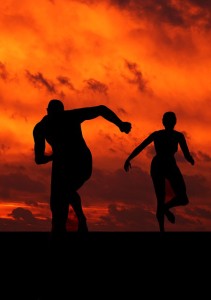 I recently discovered a word that describes the goal in lose/lose situations. If we find that we can not solve the problem, fix the situation or remedy it, and if we can not find a good course of action, we naturally try to escape it. “Minimax” becomes the new strategy:
I recently discovered a word that describes the goal in lose/lose situations. If we find that we can not solve the problem, fix the situation or remedy it, and if we can not find a good course of action, we naturally try to escape it. “Minimax” becomes the new strategy:
Minimax means “a strategy of game theory employed to minimize a player’s maximum possible loss.” It just makes sense, doesn’t it? If it burns, you move away so you will stop getting burned. It can’t take away the hurt you already have, but it helps so much to not allow it to keep recurring.
But what if you can’t get away? What if it is your child’s disability that is making your life crazy? It is too much to deal with and no one wants to deal with it, but for you it is not a choice. It is the way it is. Or what if the problem is within you? You have cancer or an autoimmune disease where your body is literally attacking itself? A lose/lose situation is almost always like cancer. It doesn’t belong. It shouldn’t be like this. It isn’t fair, and there is no fun way to deal with it.
Denial, Addictions, Delaying
Any way we mentally or chemically run away Brene Brown calls, “numbing.” When we numb ourselves to the pain, we are ultimately just making it worse. We avoid getting help we need. We might become addicted to alcohol or other chemical escapes. We delay adjusting to the situation while those around us become more and more like the people in Home, involuntarily waiting in a “concentration camp” for the runner to come back and face reality.
No Solution
When there literally is no solution, when you can not fix it, what then? If panic is caused by feeling trapped and alone, what can we do–especially if we really can’t avoid it or have to face it alone?
When we first took our family to therapy it was the most depressing thing I could imagine. We went to therapy to get help. Instead of helping us fix it, they helped us understand that it would not go away, that it was chronic. Instead of curing us, they would try to help us deal with it. That was, in fact, the goal. But first, I had to grieve.
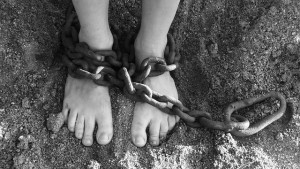 We have to grieve all that is not how we wanted it to be, all that may never be. As we grieve, we run away a little differently. We have to let go, reluctantly pulling away from our false expectations and unrealistic dreams. We leave behind the lies we told ourselves that we wished were true. We outgrow self-centered perspectives. We have to recognize and process the loss, perhaps of something we never had, before we are able to…minimax.
We have to grieve all that is not how we wanted it to be, all that may never be. As we grieve, we run away a little differently. We have to let go, reluctantly pulling away from our false expectations and unrealistic dreams. We leave behind the lies we told ourselves that we wished were true. We outgrow self-centered perspectives. We have to recognize and process the loss, perhaps of something we never had, before we are able to…minimax.
Minimax
Surgery is cutting someone. A cancer patient might lose an eye. A diabetes patient might lose a foot. It isn’t fair. It isn’t right. But, it is better than letting the whole person die. There is no option without pain.
My mom says, “fatigue makes cowards of us all.” Problems we can’t escape are particularly exhausting. We do need a rest, but sometimes even that isn’t possible. When we can’t escape the pain, we must go through it.
When I stop running, the panic dies. The limits I must accept help me to look for what I can do, for the help I can find. We can pray, and we can find help. Although we might have to look outside of our usual support group, someone knows what we are going through. We are not completely trapped. There may be little we can change, but there is something that we can. Find it. What is it you can change?
Few things help me deal with anxious feelings better than running away. I usually run or walk away from home on foot. I need to think. I need to be alone. The exercise works out my nerves and helps me relax. The feelings dissipate, and I know I need to come back home.
As badly as I want to keep running or even hide, I’m required to endure more than I can. There is no guarantee that what I have to deal with will be reasonable. Love and necessity require more.
We face reality
because we must.
Every day
impossible things are endured
by normal people.
They are our heroes.
May you find your path back
to peace within yourself
and come home again.
Namaste,
DarEll S. Hoskisson
About DarEll Hoskisson
DarEll S. Hoskisson loves to do hard things, but not too hard. She shares her own challenges, goals and experiences as she guides you into a realistic path of self-reflection and self-improvement. She shares tips on how to find, know and trust yourself so you can decide if other’s suggestions are right for you.
DarEll has the world a little upside down—where work is play and play is work. She actually thinks other people’s problems are fun to try to solve and lights up with a personal challenge. She loves people, harmony, and excellence. She also loves useful things like tools and ideas that make work faster, easier and more fun.
DarEll married in 1993 and graduated from BYU (1995) with a bachelor’s degree in English and Secondary Education. Since then she was adopted by 5 children and has worked with many non-profits. She is currently a certified personal trainer and group fitness instructor—leading pilates and yoga at her local YMCA.
DarEll lives in Florida where she enjoys her family, nature, her work, and encouraging people to live well.
She periodically posts her poems, what she is learning, and service opportunities on her personal blogs:
https://personalabridgements.wordpress.com and https://darellhoskisson.wordpress.com
Twitter •

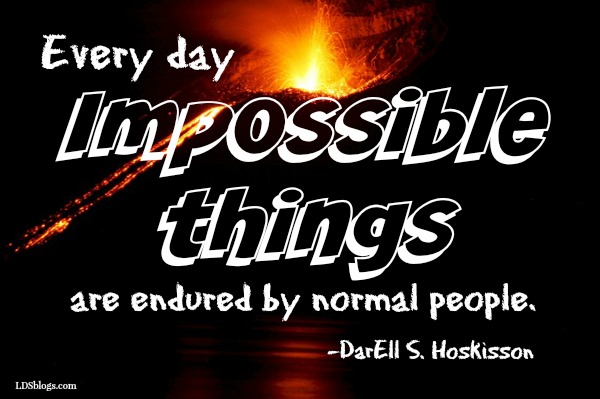
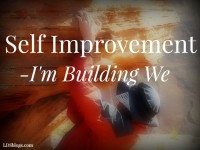
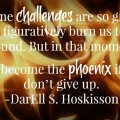
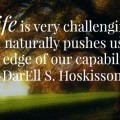
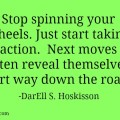
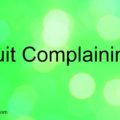

Such good council. I especially appreciated that it is Ok and even necessary to fight it first – so we know we have done everything we can.
Also, that we have to grieve things not ever being how we hoped or expected.
And that there is help. There is support but in the end many things we just have to bear the best we can.